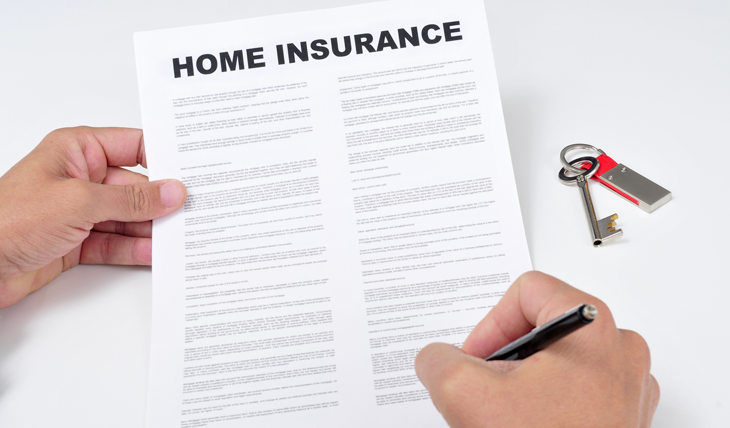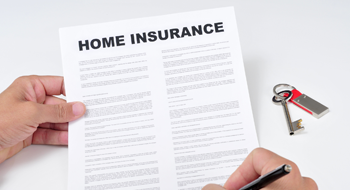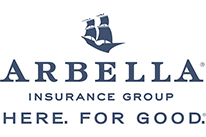
If you have just moved to Massachusetts, you have to consider getting insurance coverage for your living space. Every person wants to feel protected inside their home and, for this reason, it is essential for them to get an insurance policy.
Getting insured is important not only for homeowners, but also for renters who live in a rented apartment, condominium, or house. Some communities in which a property can be rented may require you to have some renter’s coverage as part of your agreement, but this often doesn’t provide sufficient coverage to serve you in cases of theft or damage of personal property.
A renter’s insurance policy is an affordable insurance plan for people who live in properties that do not belong to them. With a renter’s insurance policy, you and your property will be safe while you pay very little. Investopedia ranks affordability as the first reason to purchase a renter’s policy as, according to them, an “average renter's insurance policy costs $187 a year”. This rate is an average across all US states, and Boston costs even less at $180 on average annually.
Renter’s insurance comes in different forms and coverage limits. For this reason, they can be easily personalized based on your conditions and needs. If you are unsure of what type of insurance policy best fits your needs, you can get a free quote at Econosurance. You can take advantage of our expertise and allow us to advise you on what type of coverage works best.
While it is true that landlord’s policy coverage exists, it does not offer protection to its tenants. For this reason, it is common for landlords to require renter’s insurance from tenants before renting the property to them. In other cases, it will be outlined in a signed agreement that their policy does not cover you as a tenant.
A landlord policy covers structural damages to the building you live in that result from fire, lightning, or storms, not including your personal belongings.
When it comes to liabilities, the only one protected is the landlord, such as when a tenant gets injured on the premises. For these reasons, it is important you obtain your own renter’s insurance to be protected.
So, a landlord’s insurance policy covers the building in which you reside, but it excludes your personal belongings. Even in cases of accidents in your rented home, you will be held accountable if you are not insured. Therefore, it is always a good idea to get yourself a renter’s insurance policy..
Regardless of where you live, the types of renter’s insurance available are:
Each of these coverages has specifics that are outlined below.
You may not own the residence, but you do own the stuff in it. That is what makes your rented place special and your home despite you not owning it. However, in cases of theft or fire, the only one that will be affected by the damage is you because chances are, your personal belongings will be at stake.
Renter’s personal property coverage will cover the costs of replacing your personal items in the case of:
All your items will be replaced up to the limit agreed between you and the insurance company e.g. if you agreed to $15,000 coverage, your belongings will be covered up to $15,000.
If you are not familiar with the term, liability insurance protects the insured party against claims that come from injury or damage caused to other people or their belongings while on the insured property. This type of policy covers the legal costs you may face, as well as any compensation payouts that you might be legally liable for from claims made from another party. However, this only includes unintentional damages caused on your behalf.
Usually, renter’s policies you purchase provide a minimum limit of $100,000 for financial protection for liability claims caused:
In some cases, liability coverage includes medical bills of others up to $1,000 per person when it comes to necessary medical expenses following an accident on your property. Higher amounts are also available, but those become available according to your agreement with the insurance company.
Accidents happen. If for any reason, your rented property becomes severely damaged or inhabitable due to fire or similar risks, additional living expenses coverage will take care of you.
Although this type of insurance does not cover the damages to your rented property (as that is normally included in the landlord’s coverage), it will cover the costs that you incur from not being able to live there, such as hotel bills.
There are limitations to what your renter’s insurance covers. It is always important to include optional coverage, such as for:
Some insurance companies include risks such as credit or debit card thefts, fungi, or even inflation protection in their insurance plans. However, this is not a given, so you will need to check the particular terms of the policy. An independent insurance agent can help you find the best coverage deal for your situation, and can potentially save you hundreds of dollars while giving great coverage.
In order to get a personalized insurance policy, you need to consider:
Creating a home inventory is important because you’ll be able to set coverage appropriate to your situation. This will allow you to create an overall value of your belongings that you’ll want to cover.
Additionally, insurance companies usually offer the possibility of replacing your belongings with cash (ACV), covering their exact cost at the moment of purchase, or they can replace the items with new ones at the current market price (RCC).
Your insurance agent can help you make a decision on the approximate value of your belongings, as well as what form of return benefits you the most.
A bundled policy is normally the best option money-wise. Most insurance brokers suggest a combined home and auto insurance policy. Renter’s coverage is inexpensive coverage that – when combined with an auto policy – reduces the policy rate of the auto aspect. In fact, the discount one receives on the auto policy is nearly as much as the cost for the renter’s policy. So, it can almost be considered a free policy. However, to get all the benefits that come from a bundled renter’s policy, you need an insurance broker that works for your benefit. That is because they learn your personal needs, and help you purchase coverage that works best for you.
If you are not sure how an insurance broker can help you with finding the best deals, you can learn more from the case of one of our own clients here at Econosurance:
Susan, who is one of our clients, called us a few months ago to get one of her friends an insurance package for her rented apartment and her vehicle. After getting her friend a bundled package, we spoke to Susan for a while to also learn more about her. However, that conversation ended there and we did not speak to Susan for months.
Naturally, after months of not speaking, we did not put much thought into her case, but she called us to get her own homeowner’s insurance, given her friend’s satisfaction with our services. However, we were sure that we could get her a better deal so we talked to her further to understand her situation and then opted for a bundled home and auto package.
This policy combination saved Susan over $700 dollars, which made her and us very happy. Our number one priority at Econosurance is to create a conversation rather than a transaction with an insurance client. Apart from saving the client money, we also always seek to create a connection with the client; this ensures high-quality services and satisfied clients.
All in all, a renter’s policy is very beneficial because it provides protection for your property, against liabilities and unplanned living expenses, and even optional coverage for luxury items and other items such as a high-end bicycle or a scooter. Apart from being affordable on its own, you can save even more money if you bundle your renter’s and auto insurance together!
An insurance broker with ties to different insurance companies can help you find affordable personalized deals. Make sure to ask your agent exactly what your policy covers, as well as keep in touch to find out whether you can benefit from discount policies. This will allow you to get the most of your coverage and make buying insurance a little easier.

Mobile Home Insurance: An In-Depth Coverage Guide
If you own a mobile home, several threats could affect your house more severely than a traditional house. For example, many people have heard about the devastation a tornado can cause in mobile home camps.

What Is a Home Insurance Deductible?
5.1% of insured homes in the United States had a home insurance claim in 2019, according to ISO. Nearly all of these claims were due to property damage, including theft, which amounted to 97.2% of claims. The remaining 2.8% of claims were liability losses.

5 Tips for Choosing the Right Home Insurance Companies for You
Homeowners insurance isn't on most people's minds until they experience damages, a disaster, or someone gets injured on their property. Only about 85% of homeowners have insured their homes.




